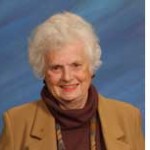
LA JOLLA, California — A few weeks ago, I got a call from the director of a senior center asking me to give a talk. I have several topics I often lecture on; for seniors it is usually about some aspect of aging. However, the director had a specific subject in mind: could I talk about giving seniors a purpose? So the first thing I did was to research this topic. I found several articles on the subject; every one of them linked better health and longevity to having a purpose. Somehow this did not feel right; I wondered whether it was semantics.
Many years ago after my husband died, I was so bereft that I decided to see a psychologist to help me deal with my mourning. Upon entering her office, my first sentence was “My life has lost all meaning!”
She answered: “Meaning is very overrated.” That struck a chord with me, and I was able to disengage myself from finding meaning and begin exploring who the new single me could become instead of seeing myself as just half a couple.
I see purpose in the same way; it is overrated. It is a meaningless word when taken out of context. Another frequent question is “What makes you get up in the morning?” For me, there is a simple answer: Breakfast!
Our early lives had specific purposes and responsibilities: earning a living, raising a family, and all the components that surround the behaviors expected to fulfill these obligations. It is when one retires from daily duties that the question “What now?” emerges.
Some people have no trouble with the answer. They are either still working part-time, volunteering, or have hobbies that give them pleasure. Some of my friends find fulfillment taking care of grandkids, some are happy traveling or taking classes, while others seem to be perfectly satisfied playing golf or bridge. All without any thought of purpose. People can be content doing nothing in particular. My husband said all he wanted in his retirement was to read, take walks on the beach, exercise, and meet with friends. He was not concerned with purpose.
But then, there are those who indeed feel lost after retiring. Their lives were regulated with things to do and measurable results for their efforts. Because they were always doing something, not doing left a gap. There were places to go, people to see, and tasks to be accomplished. Without these objectives, they felt a lack of purpose. While there may be a feeling of euphoria shortly after retirement, it often does not take long for golf, the gym, or staying home to feel empty. This is when well-meaning friends come in with the advice: “You need a purpose.” To counter this, my friend Aline questions: “Why must we be productive right up to the last moment? Can’t we exit this life from a contemplative stance, free of purpose and the guilt associated with depleting resources without paying our way?”
So for these people, I would like to propose a different way of thinking about their lives: Instead of needing a purpose, how about getting a deeper sense of worth in your life from the opportunity to contribute by being who you are? It is the same idea expressed by the biblical quote: “Each of you should use whatever gift you have received to serve others…” (1 Peter 4:10, New International Version). We have opportunities to give of ourselves in all our interactions. It can be as simple as listening to someone—the gift of our time.
What can you still offer? Holding someone’s hand, giving comfort and/or advice, reading to someone, and telling a joke to make a sad person smile are all meaningful contributions. Look for where you can be helpful and what skills you have that may be useful to someone.
As retirees, we need to find a new sense of self, going from doing to being. Simply being who you are may be enough. This requires self-reflection, being in touch with your feelings and needs, and answering the question of what makes you feel fulfilled.
My greatest joy and feeling of satisfaction continue by making a difference in someone’s life. When I was younger, empowering women was my objective; now it is empowering people my age to continue to be the best they can be and find fulfillment in the process. Giving of oneself, being of service, is my answer to the question the director asked me to address.
© Natasha Josefowitz. This article appeared initially in the La Jolla Village News. You may comment to natasha.josefowitz@sdjewishworld.com